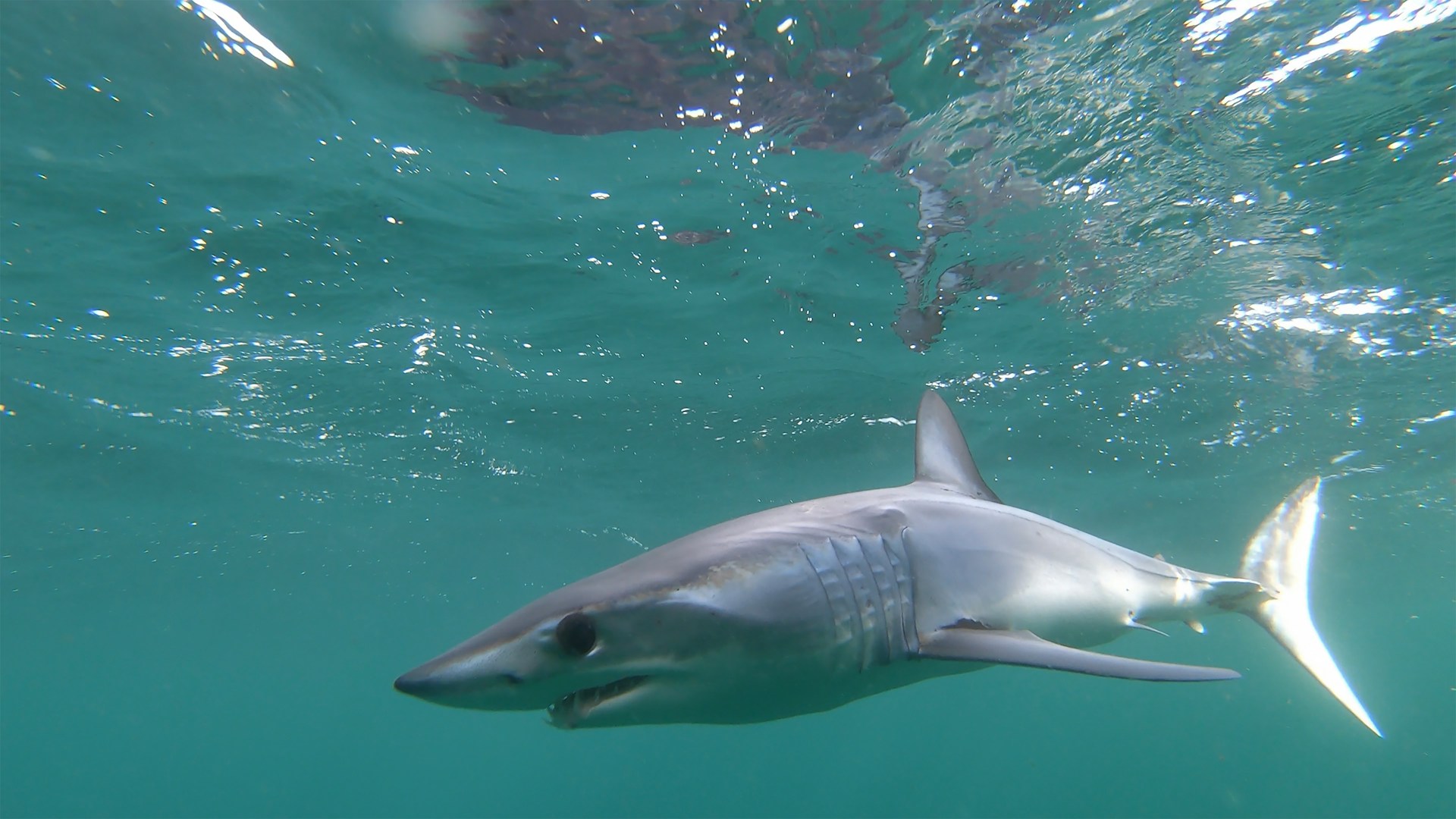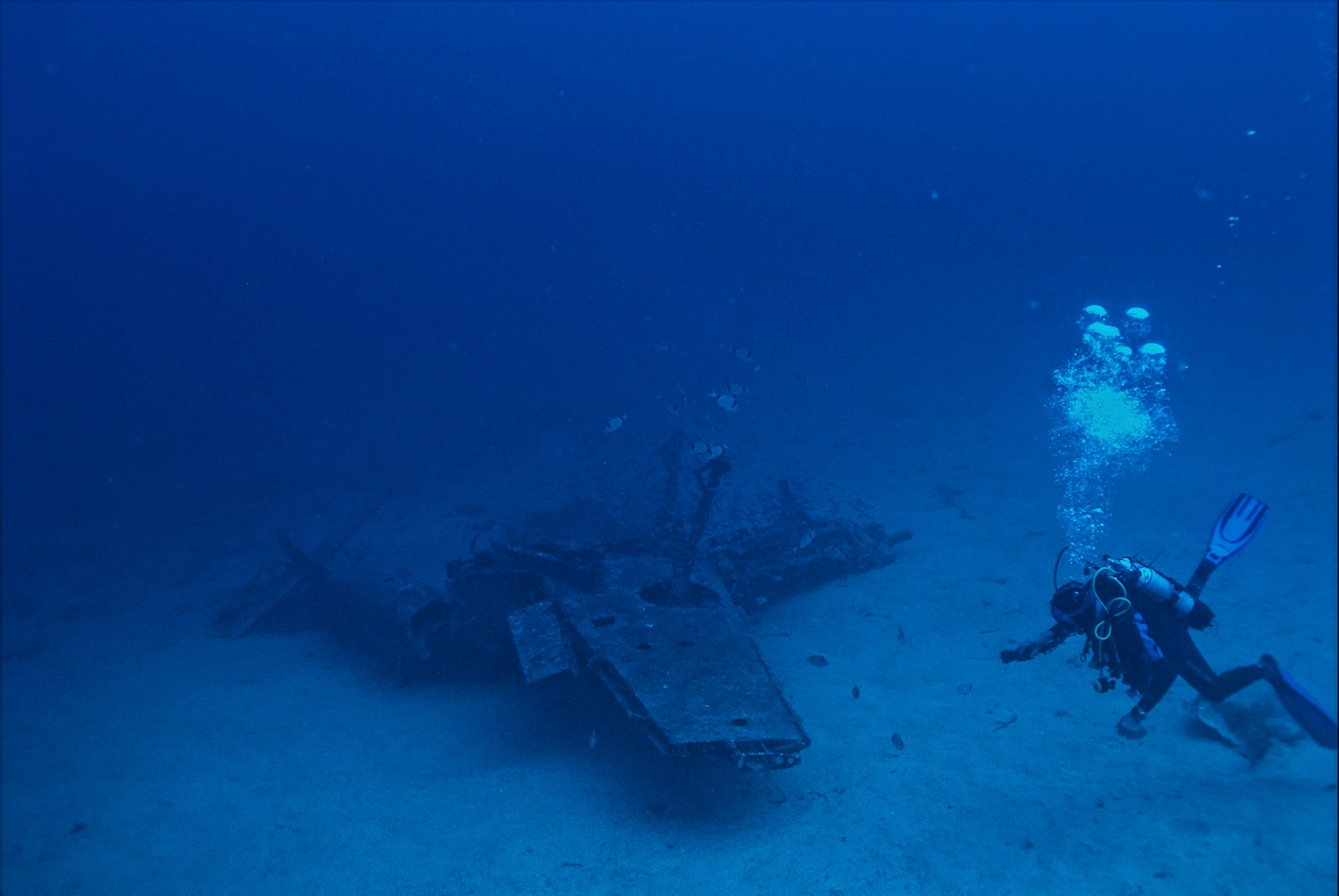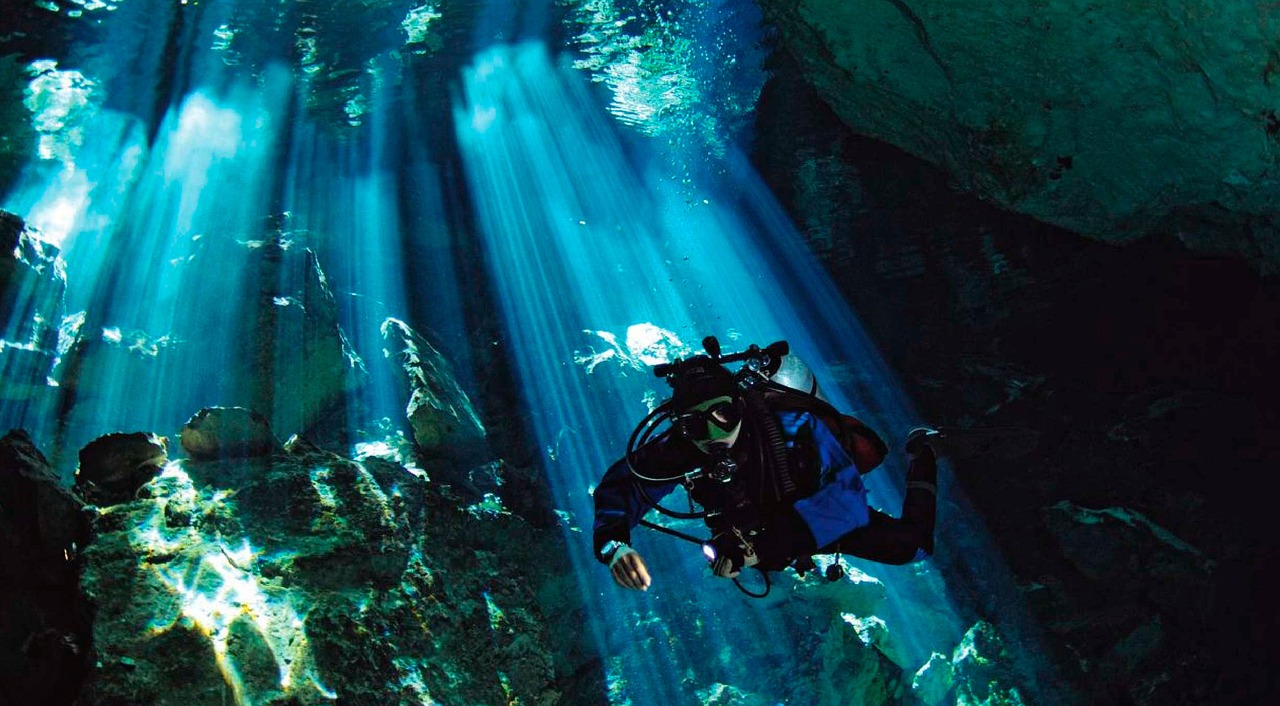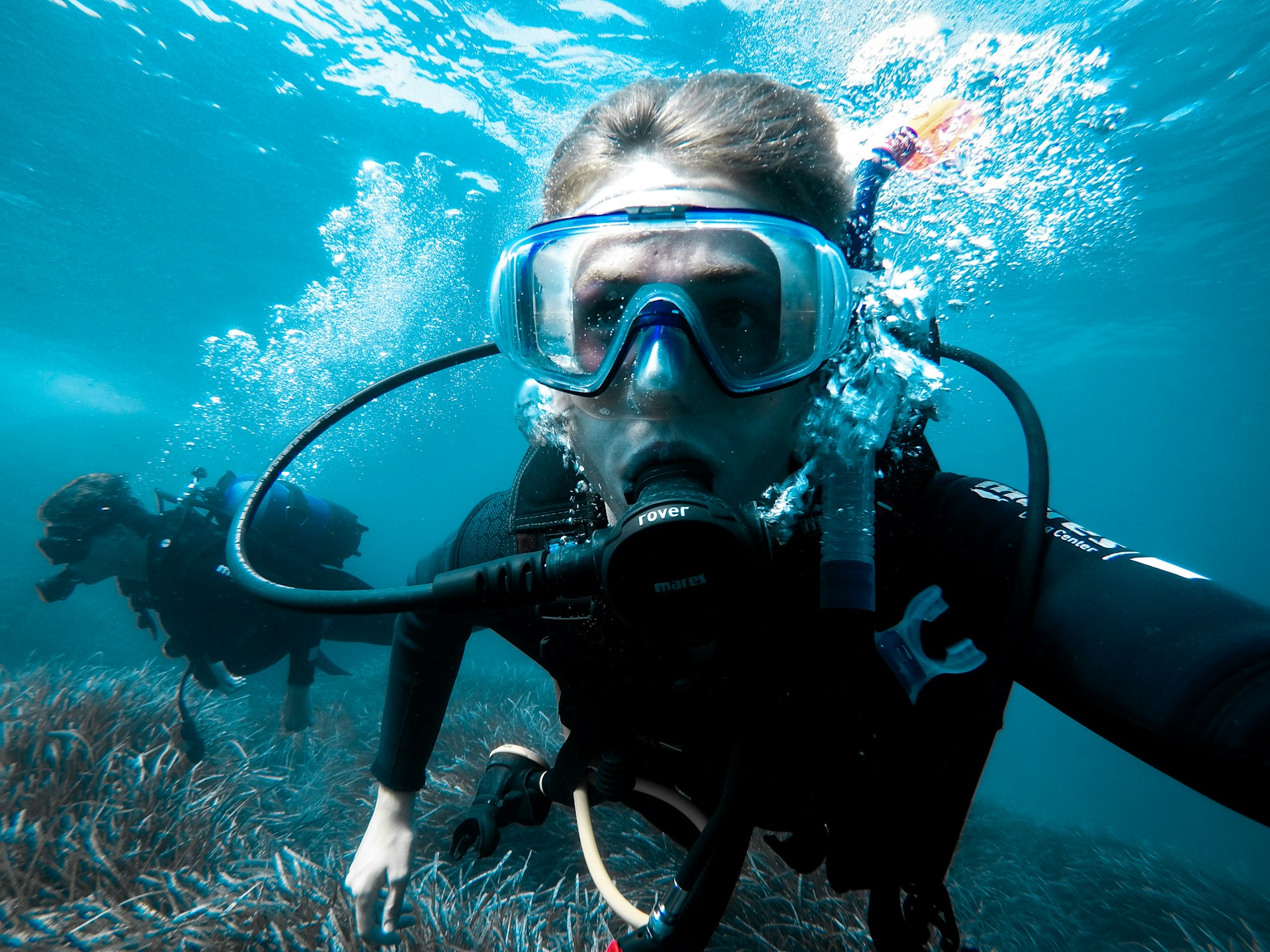A rare and endangered mako shark was recently filmed gliding through the waters between Ipanema Beach and the Cagarras Islands in Rio de Janeiro. The sighting, recorded by a group of divers on Sunday, March 23, marks the first documented appearance of this fast-moving predator in urban coastal waters near the iconic beach. Known for reaching speeds of up to 70 km/h (43 mph), the mako’s unexpected presence near one of the world’s most famous shorelines has amazed marine experts and beachgoers alike.
The encounter occurred during a dive led by Andrew Macau, an instructor from the Macau Dive school. As he guided a group toward the Cagarras Islands, Macau noticed distinct fins slicing through the water’s surface. The group halted the boat, and to their surprise, the shark approached calmly. Equipped with an underwater camera, Macau captured clear footage of the shark swimming peacefully in its natural environment, showing no signs of aggression. The video quickly drew attention from marine researchers and wildlife enthusiasts, emphasizing the ecological significance of the region.
Ricardo Gomes, director of the Instituto Mar Urbano, described the sighting as a rare and privileged moment. He highlighted the importance of the mako shark as a top predator that plays a vital role in maintaining the balance of ocean ecosystems. Despite the proximity to Rio’s shoreline, shark-related incidents in the area remain virtually nonexistent, offering reassurance to swimmers and locals. According to Gomes, the shark’s presence is a positive indicator that marine biodiversity is still thriving in the waters off Rio, even amid intense urban development.
A Scientific First in Urban Waters
The appearance of a mako shark so close to Rio’s urban coast is not just a milestone for diving enthusiasts—it’s a significant event for the scientific community. Until now, there were no known records of this species being observed in such proximity to the city’s shoreline. The mako shark, scientifically named Isurus oxyrinchus, typically inhabits deeper, temperate ocean waters and rarely ventures close to densely populated areas.
This unexpected sighting has led scientists to consider the possible reasons behind the shark’s unusual behavior. Based on its size—about 1.5 meters in length—researchers believe the individual might be a juvenile. At this stage of development, younger sharks often seek out shallower waters to avoid larger predators like orcas or bigger sharks.
The Cagarras Islands, located roughly five kilometers off Ipanema Beach, form a protected marine area that serves as a haven for a variety of sea life. Designated as a Natural Monument since 2010, the archipelago is home to vibrant schools of fish, seabirds, and even humpback whales during migration seasons. This rich and diverse ecosystem may have provided the young shark with both shelter and food, making it a logical, albeit rare, destination.
Environmental Implications and Conservation Significance
Marine biologists are celebrating the sighting as an encouraging sign for local marine conservation efforts. The fact that a threatened species like the mako shark was seen so close to an urban area suggests that environmental protections around the Cagarras archipelago might be having a tangible impact. However, experts also warn that mako sharks remain under serious threat globally due to overfishing and habitat degradation.
The mako shark is listed as endangered on the IUCN Red List, and its numbers have declined sharply in recent decades. Encounters like this highlight the need for continued investment in ocean conservation and stricter protections for vulnerable species.
At the same time, the sighting underscores the potential for coexistence between urban life and marine wildlife—provided that conservation measures are respected and maintained. For now, the young mako’s visit serves as a reminder of the ocean’s resilience and the importance of preserving its fragile ecosystems for generations to come.



